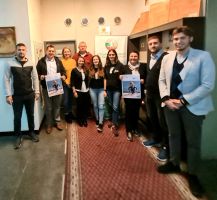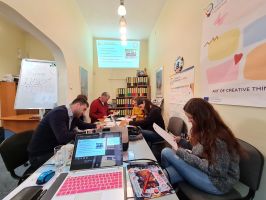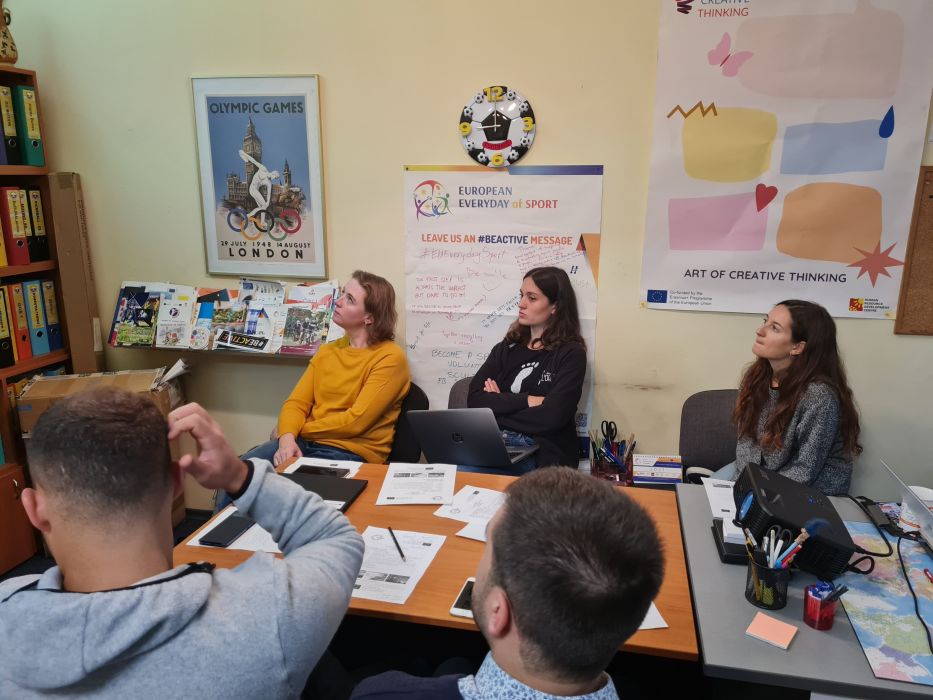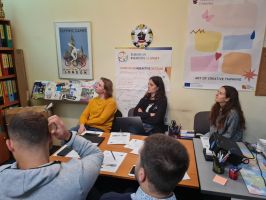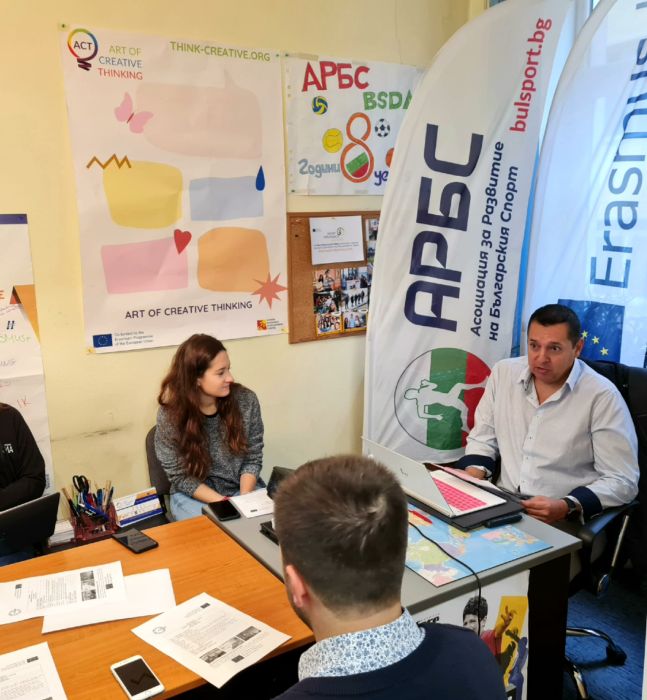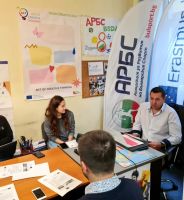NEWS

BSDA HOSTED THE SPORT FOR INCLUSION AND INCLUSION FOR SPORT PROJECT


14.10.2021
In the period 11-14 October 2021, in Sofia, Bulgaria an international meeting within the "Sport for inclusion and inclusion for sport" project was held, which brought together partners from 4 European countries - Bulgaria, Italy, Lithuania and Turkey. Sports for inclusion and inclusion for Sport is a project that seeks to encourage social inclusion and equal opportunities in sport through improvement of skills of coaches, trainers and other staff of organizations active in the fields of sport, youth work and social care and activities related to the social inclusion through sports - Bulgarian sports development association, which is a partner of the initiative from Bulgaria, was represented by Ivaylo Zdravkov, a board member of BSDA.
THE MAIN GOALS OF THE PROJECT ARE:
• To create, provoke and strengthen the synergy between the sectors of sports, formal and non-formal education; so as to create an enabling environment for cross-sectoral cooperation with the aim to increase the participation and equal access to sport for all;
• To create the necessary opportunity for the target groups to go through non-formal training, using sports as a training tool;
• To elaborate Handbook to help coaches, trainers and other staff of organizations active in the fields of sport, youth work and social care to use sport as a fun tool for social inclusion and at the same time provide them description of the key elements to recognize those who can seek for higher or highest sport results. Handbook will be freely available and adoptable by other sport, youth, NGOs and governmental organizations;
• To promote an innovative approach in the field of non-formal education in the sports sector, to raise awareness and understanding that not only sport can be a tool for social inclusion, but also social inclusion through sport, can lead to the growth of sports talents;
• To promote the cooperation for knowledge exchange and capacity development in areas such as education, training and the sports sector between schools, sports clubs and NGOs.
TARGET GROUPS:
• Coaches, trainers, teachers, lectors, instructors, students of universities and other staff of organizations active in the fields of sport, youth work and social care;
• Young people (age 12-22), who will participate in various sport and physical activities planned during the project;
• Representatives of the local community.
EXPECTED RESULTS:
• Sharing and exchanging good practices;
• Handbook and set of tools with new methods, developed by trained professionals with the help of a team of experts in the field;
• Extended international network of professionals able to use the experience gained from the project;
• Strategic cross-sectoral cooperation between sports stakeholders and the non-governmental sector in Europe;
• Increased efficiency and capacity of the participating organizations through education of participants in the sports sector, presentation of practical examples and individual solutions for training and use of non-formal education and the "Education through sport" methodology;
• Qualitative framework for the use of the "Education through Sport" methodology in the daily work with target groups at the level of the European Union (EU);
• Better expertise and competence of the organizations involved with the project, through exchange of good practices.
“Sport for inclusion and inclusion for sport“ project is co-funded by the Erasmus+ program of the European Union.
• To create, provoke and strengthen the synergy between the sectors of sports, formal and non-formal education; so as to create an enabling environment for cross-sectoral cooperation with the aim to increase the participation and equal access to sport for all;
• To create the necessary opportunity for the target groups to go through non-formal training, using sports as a training tool;
• To elaborate Handbook to help coaches, trainers and other staff of organizations active in the fields of sport, youth work and social care to use sport as a fun tool for social inclusion and at the same time provide them description of the key elements to recognize those who can seek for higher or highest sport results. Handbook will be freely available and adoptable by other sport, youth, NGOs and governmental organizations;
• To promote an innovative approach in the field of non-formal education in the sports sector, to raise awareness and understanding that not only sport can be a tool for social inclusion, but also social inclusion through sport, can lead to the growth of sports talents;
• To promote the cooperation for knowledge exchange and capacity development in areas such as education, training and the sports sector between schools, sports clubs and NGOs.
TARGET GROUPS:
• Coaches, trainers, teachers, lectors, instructors, students of universities and other staff of organizations active in the fields of sport, youth work and social care;
• Young people (age 12-22), who will participate in various sport and physical activities planned during the project;
• Representatives of the local community.
EXPECTED RESULTS:
• Sharing and exchanging good practices;
• Handbook and set of tools with new methods, developed by trained professionals with the help of a team of experts in the field;
• Extended international network of professionals able to use the experience gained from the project;
• Strategic cross-sectoral cooperation between sports stakeholders and the non-governmental sector in Europe;
• Increased efficiency and capacity of the participating organizations through education of participants in the sports sector, presentation of practical examples and individual solutions for training and use of non-formal education and the "Education through sport" methodology;
• Qualitative framework for the use of the "Education through Sport" methodology in the daily work with target groups at the level of the European Union (EU);
• Better expertise and competence of the organizations involved with the project, through exchange of good practices.
“Sport for inclusion and inclusion for sport“ project is co-funded by the Erasmus+ program of the European Union.

 Български
Български








































